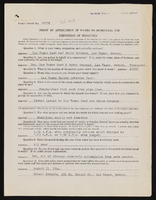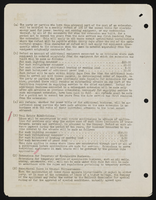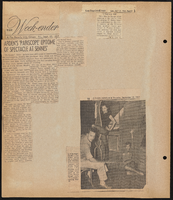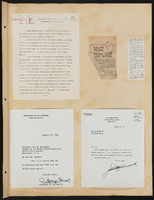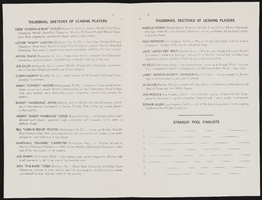Search the Special Collections and Archives Portal
Search Results

Letter from E. E. Bennett (Los Angeles) to Calvin M. Cory, March 17, 1947
Date
1947-03-17
Archival Collection
Description
The city asked the Las Vegas Land and Water Co. to either fence or place Las Vegas Creek in a culvert, and Bennett was asking if they were obliged to do so.
Text

Letter from Walter R. Bracken (Las Vegas) to W. H. Comstock (Los Angeles), February 4, 1923
Date
1923-02-07
Archival Collection
Description
Since the water company was experiencing many consumer complaints, Mr. Bracken suggested pumping the sand from at least one of the springs in an attempt to increase flow.
Text

Letter from A. S. Halsted (Los Angeles) to Mr. Knickerbocker, June 11, 1924
Date
1924-06-12
Archival Collection
Description
The Las Vegas Land and Water Co. had drilled a new well but they had not filed the paperwork to legally appropriate the water.
Text

Letter from Walter R. Bracken (Las Vegas) to F. H. Knickerbocker (Los Angeles), March 7, 1929
Date
1929-03-09
Archival Collection
Description
Walter Bracken reporting to Fred Knickerbocker on the water situation on properties recently purchased by T. J. Lawrence.
Text
Pagination
Refine my results
Content Type
Creator or Contributor
Subject
Archival Collection
Digital Project
Resource Type
Year
Material Type
Place
Language
Records Classification

